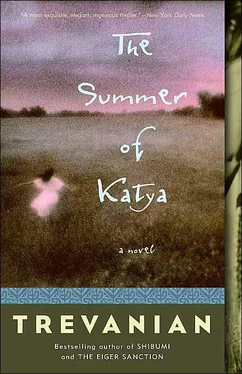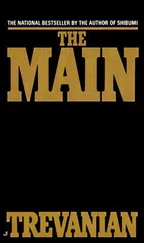Rodney Whitaker - The Summer of Katya
Здесь есть возможность читать онлайн «Rodney Whitaker - The Summer of Katya» весь текст электронной книги совершенно бесплатно (целиком полную версию без сокращений). В некоторых случаях можно слушать аудио, скачать через торрент в формате fb2 и присутствует краткое содержание. Город: New York, ISBN: , Издательство: Crown Publishing Group, Жанр: Триллер, Современные любовные романы, на английском языке. Описание произведения, (предисловие) а так же отзывы посетителей доступны на портале библиотеки ЛибКат.
- Название:The Summer of Katya
- Автор:
- Издательство:Crown Publishing Group
- Жанр:
- Год:неизвестен
- Город:New York
- ISBN:1400098041
- Рейтинг книги:4 / 5. Голосов: 1
-
Избранное:Добавить в избранное
- Отзывы:
-
Ваша оценка:
- 80
- 1
- 2
- 3
- 4
- 5
The Summer of Katya: краткое содержание, описание и аннотация
Предлагаем к чтению аннотацию, описание, краткое содержание или предисловие (зависит от того, что написал сам автор книги «The Summer of Katya»). Если вы не нашли необходимую информацию о книге — напишите в комментариях, мы постараемся отыскать её.
The Summer of Katya — читать онлайн бесплатно полную книгу (весь текст) целиком
Ниже представлен текст книги, разбитый по страницам. Система сохранения места последней прочитанной страницы, позволяет с удобством читать онлайн бесплатно книгу «The Summer of Katya», без необходимости каждый раз заново искать на чём Вы остановились. Поставьте закладку, и сможете в любой момент перейти на страницу, на которой закончили чтение.
Интервал:
Закладка:
Still the hydropathic branch of French medicine is nothing if not responsive to the vagaries of economics and fashion, and it was not long after women of a certain age stopped coming to Salies that its water was discovered to contain just that combination of temperature, salts, and trace minerals that made it sovereign for the treatment of severely retarded children. The casino and the charming little hotels have become establishments for the year-round care of such unfortunates as are kept, for their own good, well away from the quotidian lives of their discomfited parents. And today, down streets where once pairs of modish ladies paraded their gowns of mauve or ashes-of-rose, queues of gawking bland-faced children slap and stumble along under the control of large, disinterested matrons who bring them daily to the baths. There they plash about in the tepid waters or gag and grimace as they swallow their daily dosage.
But it is not this change of tone and clientele that makes it difficult for me to record my impressions and memories of that summer before the war. Indeed, Salies has been spared the architectural blemishes of the ‘twenties and ‘thirties that have scarred most resort villages, protected by its fall from fashion and subsequent lack of growth and modernization, and the unchanged physical surroundings tempt and prompt my recall, each remembered event dislodging in turn another incident, another sound, another image from the deep lagan of my memory. And there is another, rather frightening, bridge between this time and that summer nearly quarter of a century past. Now as then, there are whispers and rumors of impending war. There is a kind of melancholy excitement in the air, a timid hysteria, a low-grade fever of patriotism. Plans and projects are suspended; and there is an ambience of hopelessness in the brave talk and awkward swagger of the young men who are half expecting to be mobilized, despite everyone’s confidence in General Maginot’s impregnable line.
But despite the physical and emotional parallels between today and that distant summer, I find it difficult to express my memories lucidly. The problem is not in the remembering; it is in the recording; for while I recall each note clearly, they play a false melody when I string them together. And it is not only the intervening years that distort the sounds and images; it is the fact that the events occurred on the other side of the Great War, beyond the gulf of experience and pain that separates two centuries, two cultures. Those of us whose lives are draped across that war find their youths deposited on the shore of a receding, almost alien, continent where life was lived at a different tempo and, more important, in a different timbre. The things we did and said, our motives and methods, had different implications from those they now have; therefore, it is possible for a description of those things to be completely accurate without being at all truthful.
But I have promised myself that I would revisit, touch, and handle all the memories of that summer and Katya, and I must do this, although I am not at all confident that I can convert those memories into meaning.
I first saw Katya at a distance. I was sitting right here, beneath this ancient tree on the riverside park, my notebook in my lap as it is now. I was daydreaming under the guise of meditating, when I looked up and noticed her walking across the deep lawn towards me. My first glance, a squint from beneath my straw boater, was casual, and I returned to my thoughts, only to be attracted again almost immediately. I later told myself that I had sensed something of significance in her approach, but that is nonsense. It was probably the determination in her strong stride that captured my attention. The ladies who took the air and waters of Salies strolled around the paths of the park with studied aimlessness, gossiping as they engaged in attractive light exercise, always in twos, for ladies in those days did not stroll in a park alone. Katya’s purposeful stride had none of the rhythms of strolling.
I was a bit embarrassed and uncertain at her approach, once I determined that, for lack of alternative in the empty park, I must be her objective. Should I stand to greet her? Would that not seem forward, as she was a stranger to me? On the other hand, how could I receive her sitting with my back against a tree, a notebook in my lap, my skimmer down over my eyes? One has to be young and of a certain temperament to find confusion and embarrassment in such trivial social incidents, and I was exactly the right age and temperament. I sat up and looked around rather theatrically, seeking to communicate to her that I was searching for the object of her quest and was not so bold as to assume it was I. Then I stood, took off my straw hat, and awaited her arrival with a smile that fluttered weakly for want of sure purpose.
“Mademoiselle?” I ventured when she was standing before me.
“You are Dr. Montjean?”
“That is one of my burdens, yes.” It was a habit of mine to rehearse social situations and to develop what I thought were cultured and interesting responses to simple questions. The effect was rather stilted and artificial, and I almost always regretted the words as they escaped from my mouth.
“My brother has had an accident, Doctor.” The matter-of-fact way she said this suggested there was no great urgency.
“Oh?” I looked across the park, half expecting to see someone approaching—a friend, the brother himself—for who would send a young lady to fetch a doctor if there were others available. “Ah… where is your brother now, Mademoiselle…?” I lifted my eyebrows in gentle request for her name.
“He’s at home.”
“At home?”
“Yes. We live at Etcheverria. Do you know the house?”
I confessed that I did not.
“It’s two-point-six kilometers from Salies, up the Mauleon road.”
I had to smile at the precision. “Two-point-six kilometers exactly?”
She nodded. “Shall we go?”
“Ah… by all means. I shall have to collect my bag.” She turned and began to walk across the grass towards the village square before I could offer my arm, so I found myself awkwardly hastening to catch up with her. “Ah… how did you come into the village? Have you a trap?”
“I rode in on my bicycle. I left it in the square.”
Young women of that era sometimes teetered about on bicycles for amusement and display, but the use of them for transportation was not common, inhibitions of propriety no less prohibitive than inhibitions of dress. I found her indifference to those inhibitions intriguing. “Can you tell me something about your brother’s accident, Mademoiselle…?”
“Treville. Oh, I don’t believe it’s anything really serious, Doctor. He fell from his machine.”
“His bicycle?”
“Yes. We were having a race, and he fell.”
“A race? I see.” I glanced over at her profile and was taken by the golden, suntanned cheek and the healthy complexion, uncommon in women of the middle class where pallor was not only accounted an element of beauty, but a cherished proof that one was leisured. She was hatless, a lapse of sartorial propriety when women wore fluttering, broad-brimmed hats even when motoring or riding. Her full dark hair was drawn back in a soft bun, but wisps had escaped to float about her temples—disarranged, no doubt, by her bicycle ride of exactly two and six-tenths kilometers. It would not be correct to describe her as a beauty, for there was too much vigor in her features, too much energy in her expression, to satisfy the popular ideal of plump passive beauty. One might more accurately call her a handsome woman… I thought her a very handsome woman indeed. I was looking at the graceful line of her neck, the nape of which was brushed by soft commas of hair, when she turned to me, her eyes asking why I was staring at her in that way.
Читать дальшеИнтервал:
Закладка:
Похожие книги на «The Summer of Katya»
Представляем Вашему вниманию похожие книги на «The Summer of Katya» списком для выбора. Мы отобрали схожую по названию и смыслу литературу в надежде предоставить читателям больше вариантов отыскать новые, интересные, ещё непрочитанные произведения.
Обсуждение, отзывы о книге «The Summer of Katya» и просто собственные мнения читателей. Оставьте ваши комментарии, напишите, что Вы думаете о произведении, его смысле или главных героях. Укажите что конкретно понравилось, а что нет, и почему Вы так считаете.












